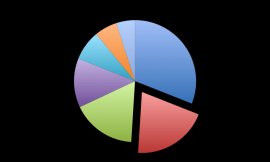
 what's a hedge fund?
what's a hedge fund?
A hedge fund is an exclusive financial investment automobile that employs particular trading strategies to make the most of marketplace inefficiencies. One of the main objectives of hedge funds is create returns which can be typically uncorrelated with broader financial areas with lower volatility than more conventional investment cars (particularly mutual resources or single shares). Stated differently, hedge funds aim to generate strong threat- modified comes back for his or her investors.
Why invest in hedge funds?
Diversification. Hedge funds typically have more flexibility than many other financial cars when it comes to how they can trade and have the ability to produce returns that are less correlated to wider monetary markets. Hedge funds frequently use special trading techniques, including the using types, leverage or quick attempting to sell, that are generally more difficult to reproduce using old-fashioned asset classes. As a result, hedge funds tend to be a powerful device for variation of more conventional assets, these types of shares and bonds.
Strong danger modified returns. Many hedge resources aren't fundamentally made to regularly outperform the greater areas on a complete basis. As an alternative, many hedge funds follow investment objectives that strive to produce a more consistent (and as a consequence less volatile) return flow irrespective of total market circumstances. Hedge resources tend to be supposed to produce asymmetric returns, meaning they should be capable capture a lot of the upside in good markets, but shield investors whenever broader markets are dropping.
Liquidity. Hedge funds, compared to various other alternate assets like personal equity, capital raising, and real estate, are fairly liquid. Investors various other forms of personal resources are bound by long holding times, frequently so long as decade. Most hedge resources give people the capability to redeem their financial investment quarterly.
Do you know the different types of hedge resources?
Hedge funds can follow numerous methods, but are generally speaking split into five significant groups:
Long / brief Equity– long / brief equity funds will be the most prevalent hedge investment method in the industry. Long / short equity resources are often what individuals think of when they notice the expression “hedge investment” – these supervisors will usually invest in the stock of businesses they think will succeed (for example. “go long”) and will wager against other businesses which they believe will underperform (i.e. “go short”).
Event Driven– occasion driven funds target organizations that having particular corporate activities or developments. Typical events consist of mergers and acquisitions, restructurings, shareholder buybacks, activist promotions, and monetary distress. Event driven resources generally spend across both equity (in other words. stocks) and credit (for example. loans). These investments are often chosen for their company-specific traits as opposed to broad market belief.
Macro– macro resources invest based on future alterations in international economic policy and considering wide economic events globally. Macro funds are discretionary (i.e. based on man judgments) or systematic (i.e. based on quantitative designs) and sometimes invest across numerous asset classes to achieve their particular return objectives. Macro resources are generally minimal correlated to other hedge fund strategies.
General Value– relative value resources take advantage of worth discrepancies between different types of securities in order to generate returns. Discrepancies can be both market chosen and company specified. Relative value managers often spend money on debt and credit tools to realize their return targets. Particular hedge resources that are “market neutral” can certainly be categorized as relative price.
Diversified / Multi-Strategy– diversified funds, also known as multi-strategy resources, can make use of any or the various other hedge investment methods of attain their particular targets.
YOU MIGHT ALSO LIKE












